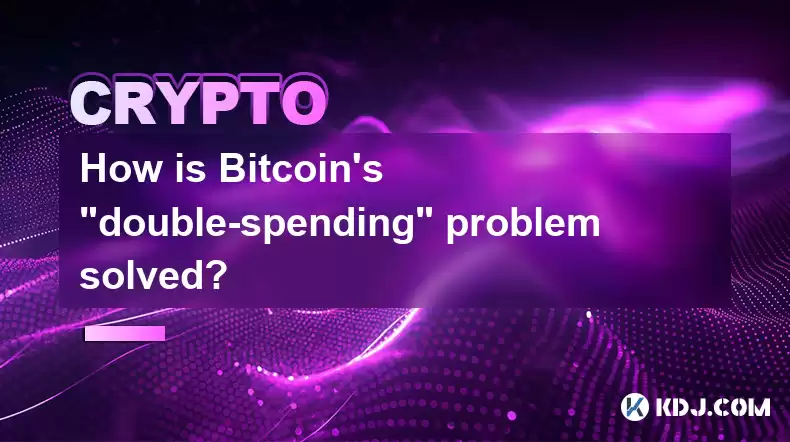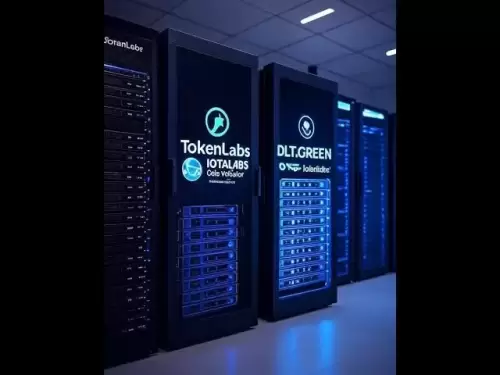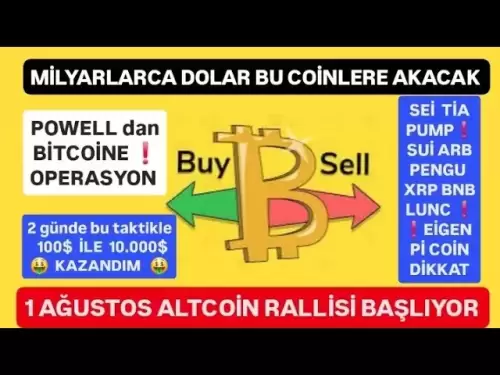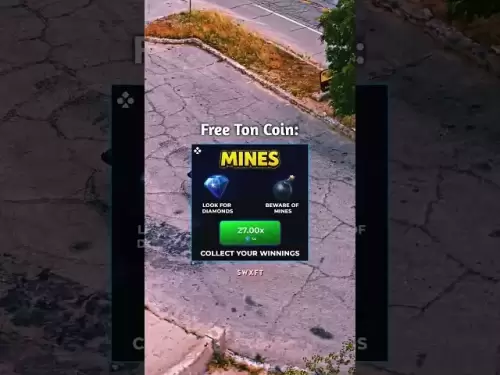-
 Bitcoin
Bitcoin $118000
-1.29% -
 Ethereum
Ethereum $3758
-3.52% -
 XRP
XRP $3.113
-5.04% -
 Tether USDt
Tether USDt $0.9998
-0.05% -
 BNB
BNB $818.5
-3.23% -
 Solana
Solana $181.9
-5.10% -
 USDC
USDC $0.9997
-0.04% -
 Dogecoin
Dogecoin $0.2239
-8.33% -
 TRON
TRON $0.3233
0.95% -
 Cardano
Cardano $0.7842
-6.81% -
 Hyperliquid
Hyperliquid $43.35
-2.12% -
 Sui
Sui $3.894
-9.97% -
 Stellar
Stellar $0.4176
-6.99% -
 Chainlink
Chainlink $17.97
-6.68% -
 Bitcoin Cash
Bitcoin Cash $576.7
-2.30% -
 Hedera
Hedera $0.2671
-7.23% -
 Avalanche
Avalanche $24.64
-6.12% -
 UNUS SED LEO
UNUS SED LEO $8.972
0.08% -
 Litecoin
Litecoin $108.1
-6.55% -
 Toncoin
Toncoin $3.198
-5.94% -
 Shiba Inu
Shiba Inu $0.00001325
-6.80% -
 Ethena USDe
Ethena USDe $1.001
-0.04% -
 Uniswap
Uniswap $10.27
-7.02% -
 Polkadot
Polkadot $3.935
-7.49% -
 Monero
Monero $317.7
-2.24% -
 Dai
Dai $0.9999
0.00% -
 Bitget Token
Bitget Token $4.550
-3.85% -
 Pepe
Pepe $0.00001179
-8.68% -
 Cronos
Cronos $0.1418
-2.34% -
 Aave
Aave $286.2
-6.49%
How is Bitcoin's "double-spending" problem solved?
Bitcoin's decentralized blockchain and proof-of-work consensus mechanism effectively eliminate the double-spending problem, providing a secure and immutable ledger for digital currency transactions.
Feb 23, 2025 at 02:54 am

Key Points:
- The double-spending problem refers to the potential for a digital currency transaction to be reversed, allowing the same funds to be spent multiple times.
- Bitcoin solves this problem through the use of a decentralized blockchain, a public ledger that records all transactions permanently and securely.
- The immutability and transparency of the blockchain make it highly resistant to double-spending attempts.
How Bitcoin Solves the Double-Spending Problem:
- Transaction Verification: When a Bitcoin transaction is initiated, it is broadcast to the network of miners, who are responsible for validating the transaction. Miners verify that the sender has sufficient funds, the transaction is valid, and the funds have not been spent elsewhere.
- Block Creation: Once a transaction is verified, it is included in a block of transactions. Miners compete to create a block by solving complex mathematical problems. The first miner to create a block earns a block reward and the right to add the block to the blockchain.
- Block Confirmation: Once a block is created, it is broadcast to the entire network and added to the blockchain. All subsequent blocks reference the previous block, creating an unbreakable chain of transactions.
- Immutable Blockchain: The blockchain is a distributed ledger, meaning that it is stored across multiple computers worldwide. Each computer maintains a copy of the blockchain, ensuring that the transaction history is immutable and cannot be altered.
- Consensus Mechanism: Bitcoin uses a proof-of-work consensus mechanism, which requires miners to solve complex mathematical problems to create new blocks. This process is energy-intensive but extremely secure, as it is computationally challenging to alter the blockchain retrospectively.
- Transaction Finality: Once a transaction is confirmed in a block that becomes embedded in the blockchain, it is considered final. The immutability and transparency of the blockchain ensure that the transaction cannot be reversed or double-spent.
FAQs:
- Can Bitcoin transactions still be reversed? No, Bitcoin transactions cannot be reversed once they are confirmed in a block that is added to the blockchain.
- What happens if a miner tries to double-spend Bitcoin? If a miner attempts to include a double-spent transaction in a block, the other nodes on the network will reject the block as invalid.
- How does the blockchain prevent double-spending? The blockchain is a decentralized and immutable ledger that maintains a tamper-proof record of all transactions, making it impossible to alter or duplicate transactions.
- What is the role of miners in preventing double-spending? Miners validate transactions and create blocks, which are added to the blockchain and provide transaction finality.
- Is it possible to counterfeit Bitcoin? No, it is not possible to counterfeit Bitcoin as the blockchain ensures the integrity and authenticity of transactions.
Disclaimer:info@kdj.com
The information provided is not trading advice. kdj.com does not assume any responsibility for any investments made based on the information provided in this article. Cryptocurrencies are highly volatile and it is highly recommended that you invest with caution after thorough research!
If you believe that the content used on this website infringes your copyright, please contact us immediately (info@kdj.com) and we will delete it promptly.
- XRP Price Prediction: July 29th - Will XRP Break Free?
- 2025-07-29 15:30:12
- SEC, Truth Social, and Bitcoin ETFs: A New York Minute on Crypto Regulation
- 2025-07-29 15:10:12
- Bitcoin Treasury Titans: Decoding Strategy, BTC Purchases, and the MSTR Gamble
- 2025-07-29 15:10:12
- Ethereum, Dogecoin, and Little Pepe: A Crypto Trifecta for 2025?
- 2025-07-29 15:35:12
- LILPEPE vs DOGE: The Meme Coin Landscape in 2025
- 2025-07-29 15:40:13
- Dogecoin vs. Little Pepe: The Meme Coin Throne in 2025
- 2025-07-29 15:45:12
Related knowledge

What is Chainlink (LINK)?
Jul 22,2025 at 02:14am
Understanding Chainlink (LINK): The Decentralized Oracle NetworkChainlink is a decentralized oracle network designed to bridge the gap between blockch...

What is Avalanche (AVAX)?
Jul 22,2025 at 08:35am
What is Avalanche (AVAX)?Avalanche (AVAX) is a decentralized, open-source blockchain platform designed to support high-performance decentralized appli...

What is Polkadot (DOT)?
Jul 19,2025 at 06:35pm
Understanding the Basics of Polkadot (DOT)Polkadot (DOT) is a multi-chain network protocol designed to enable different blockchains to transfer messag...

What is Litecoin (LTC)?
Jul 23,2025 at 11:35am
Overview of Litecoin (LTC)Litecoin (LTC) is a peer-to-peer cryptocurrency that was created in 2011 by Charlie Lee, a former Google engineer. It is oft...

What is Monero (XMR)?
Jul 21,2025 at 10:07am
What is Monero (XMR)?Monero (XMR) is a decentralized cryptocurrency designed to provide enhanced privacy and anonymity for its users. Unlike Bitcoin a...

How to add indicators to Ethereum chart on TradingView?
Jul 19,2025 at 07:15am
What Is an Ethereum Chart on TradingView?The Ethereum chart on TradingView is a visual representation of the price movement of Ethereum (ETH) over a s...

What is Chainlink (LINK)?
Jul 22,2025 at 02:14am
Understanding Chainlink (LINK): The Decentralized Oracle NetworkChainlink is a decentralized oracle network designed to bridge the gap between blockch...

What is Avalanche (AVAX)?
Jul 22,2025 at 08:35am
What is Avalanche (AVAX)?Avalanche (AVAX) is a decentralized, open-source blockchain platform designed to support high-performance decentralized appli...

What is Polkadot (DOT)?
Jul 19,2025 at 06:35pm
Understanding the Basics of Polkadot (DOT)Polkadot (DOT) is a multi-chain network protocol designed to enable different blockchains to transfer messag...

What is Litecoin (LTC)?
Jul 23,2025 at 11:35am
Overview of Litecoin (LTC)Litecoin (LTC) is a peer-to-peer cryptocurrency that was created in 2011 by Charlie Lee, a former Google engineer. It is oft...

What is Monero (XMR)?
Jul 21,2025 at 10:07am
What is Monero (XMR)?Monero (XMR) is a decentralized cryptocurrency designed to provide enhanced privacy and anonymity for its users. Unlike Bitcoin a...

How to add indicators to Ethereum chart on TradingView?
Jul 19,2025 at 07:15am
What Is an Ethereum Chart on TradingView?The Ethereum chart on TradingView is a visual representation of the price movement of Ethereum (ETH) over a s...
See all articles

























































































